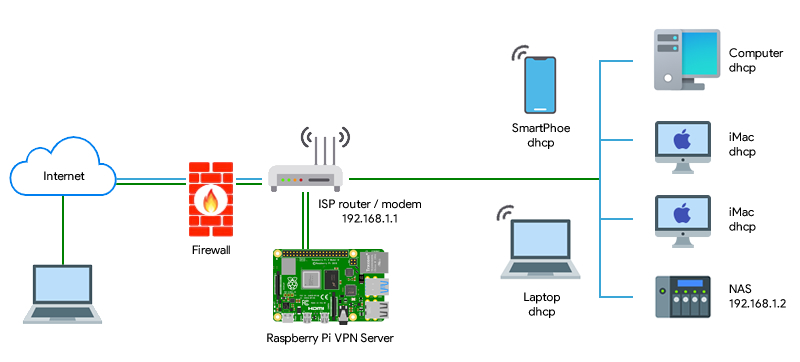Using Raspberry Pi as VPN: A Guide
Are you looking for a cost-effective way to secure your internet connection and protect your data from prying eyes? Using a Raspberry Pi as a VPN server is a great solution! In this article, we’ll guide you through the process of setting up a VPN on your Raspberry Pi.
What is a VPN?
A Virtual Private Network (VPN) is a technology that creates a secure and encrypted connection over a less secure network, such as the internet. By routing your internet traffic through a remote server, a VPN helps to protect your data from being intercepted by hackers, snoopers, and government surveillance.
Using a VPN is essential for ensuring your online privacy and security. It can also help you to bypass geo-restrictions and access content that is blocked in your region.
Setting up VPN on Raspberry Pi
Setting up a VPN server on a Raspberry Pi is a relatively simple process that can be completed in a few steps. Here’s how you can do it:
Step 1: Install Raspbian OS
The first step is to install the Raspbian operating system on your Raspberry Pi. You can download the latest version of Raspbian from the official Raspberry Pi website and follow the installation instructions.
Step 2: Install OpenVPN
Next, you’ll need to install the OpenVPN software on your Raspberry Pi. OpenVPN is a popular open-source VPN software that is easy to configure and use. You can install OpenVPN by running the following command in the terminal:
sudo apt-get install openvpn
Once OpenVPN is installed, you can proceed to configure it to create a VPN server on your Raspberry Pi.
Step 3: Configure OpenVPN
After installing OpenVPN, you’ll need to configure it to create a VPN server. You can follow online tutorials and guides to set up OpenVPN on your Raspberry Pi. Make sure to generate certificates and keys for encryption purposes.
Step 4: Connect to the VPN
Once the VPN server is set up on your Raspberry Pi, you can connect to it from your devices. You’ll need to install the OpenVPN client on your devices and import the configuration files to establish a secure connection to your VPN server.
Benefits of Using Raspberry Pi as VPN
There are several benefits to using a Raspberry Pi as a VPN server:
- Cost-effective solution for setting up a VPN
- Complete control over your VPN server
- Enhanced privacy and security for your internet connection
Using a Raspberry Pi as a VPN server is a great way to protect your online privacy and secure your internet connection. With just a few simple steps, you can set up a VPN server on your Raspberry Pi and enjoy the benefits of a secure and encrypted connection.
So, what are you waiting for? Grab your Raspberry Pi and start setting up your own VPN server today!
